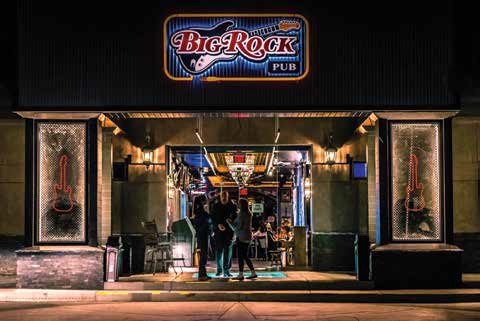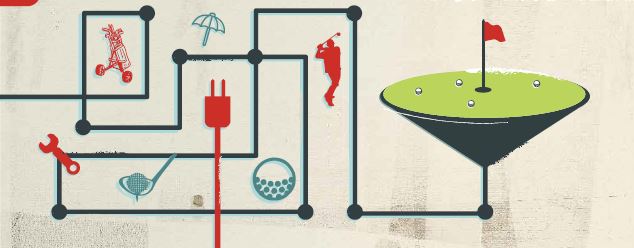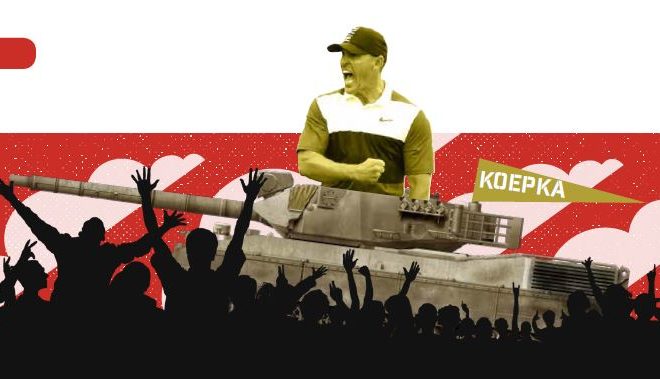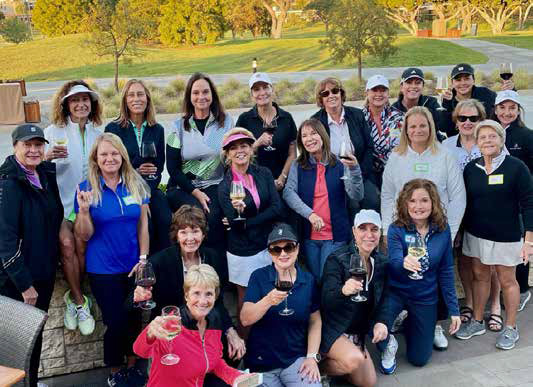Brave New World: New Rules Might Open Doors for College Golfers

As the top-ranked women’s amateur golfer in the world, Stanford freshman and Irvine native Rose Zhang stands a better chance than most college golfers of profiting from the new Name, Image and Likeness (NIL) policy implemented by the NCAA this past July. But she’s in no hurry to sign any potential deals.
“I’m definitely just trying to figure things out,” says Zhang, who won the 2021 U.S. Girls’ Junior Amateur and the 2020 U.S. Women’s Amateur. “I do have a good bit of college ahead, so I can explore my options. But I have looked into it. I want to see how it could help me in my college career and professional career in the future.”
She joins thousands of other college athletes in that search. The interim NIL policy that went into effect on July 1, 2021, enables student-athletes to earn compensation outside of team activities in the following ways, per the UCLA Athletics website: “Create and promote their own business; promote a corporate entity (that does not conflict with any of the school’s existing sponsors); establish a sports camp or clinic; make personal appearances; and conduct autograph sessions.”
Details of any deal must be shared with the athlete’s school.
REVENUE SPORTS STILL REIGN
To no one’s surprise, high-profile college football and basketball players have scored the most significant deals thus far, while non-revenue-producing sports such as golf lag far behind.
“I don’t know how much women’s college golf will be impacted by it,” says Carrie Forsyth, head coach of women’s golf at UCLA. “I think it will be a scattered few that benefit. We still really don’t know how this will play out.”
J.T. Higgins, head coach of men’s golf at USC, is taking a wait-and-see approach before judging the new policy. “I’m anxious to see in non-revenue sports like golf whether companies or individuals think they (players) can help with their product,” he says. “At the end of the day, the companies are trying to make money, not give money away. I do know this: No matter what sport it is and who you are, the better you play, the more opportunities you are going to have. If you let the golf do the talking, you’ll probably end up with some good deals.”
“It probably won’t ever get as big as it seems to be for football and basketball players,” says Michael Beard, head coach of men’s golf at Pepperdine, the defending NCAA Men’s Division-I champions. “But we have 4.5 scholarships (this year there will be 6 players on a roster that normally has 8 or 9), so it might help some kids out with paying for school.”
Schools are implementing programs to help student athletes learn about the NIL policy.
“We’re really taking an aggressive approach in educating our students and making sure they understand what it means to basically have your own business, what it means to have tax implications, how to understand contracts and what they may be entering into,” says Derek Freeman, head coach of men’s golf at UCLA.
“I don’t see it as a negative. It’s here, so I want to embrace it and make sure our players have the best opportunities available to them.”
“AT THE END OF THE DAY, THE COMPANIES ARE TRYING TO MAKE MONEY, NOT GIVE MONEY AWAY.”
Social media will be a key element of most endorsement deals, and that can be disconcerting for many coaches, like Forsyth.
“It almost disturbs me on some levels, this whole idea that we need to go out and promote ourselves,” she says. “I fear what it does to a person’s soul. But I have former players using it as a marketing tool to build their brand. It’s just the way of the world. The best thing to do is to find the right way to market yourself in a positive light, one that is good for you and whatever product you might be putting out.”
Zhang acknowledged the role social media would play in any NIL deals. “I have Instagram, so I do put whatever I feel comfortable with online and show my own personality and character,” she says. “I think that’s very important for endorsements and commercial purposes. They (the companies) kind of view you at first on social media and then might contact you if you fit their image. It definitely helps a lot in choosing people to promote their brand.”
PLAY WELL, SEE WHAT COMES
One recent NIL deal involves BYU senior Carson Lundell, who signed an agreement through next June with Utah-based Primo Golf Apparel. He’ll participate in a monthly photo/video shoot to create content for the company’s website and social media accounts, and make a monthly post on his own social media platforms. He will also wear the company’s clothing while playing in non-BYU tournaments, and his name, image and likeness could be used in the company’s advertising.
“Our attraction to Carson was much more focused on the quality of his play rather than his social media following,” says Matty Gay, co-founder of Primo Golf Apparel. “We want to have some of the best players using and wearing our products. Last year he had three wins and became an honorable mention All-American. He’s so driven and wants to be great. We feel like that carries more weight than a bigger social media following. Already we’re getting exposure that we probably wouldn’t have gotten otherwise. We want to spend more money on NIL deals. I truly believe so much attention will come to our brand if we associate ourselves with the highest level of college golfers.”
Forsyth believes women college golfers will face a higher bar when nabbing any endorsement deals. “Getting someone to not just give you clothes to wear, but to actually pay you to wear them, is rare for the professional female athlete,” she says. “I would venture that more than 60 percent of the LPGA players are not getting paid to wear something. If the pros don’t bring marketing value, I’m not sure how an amateur will do that.”
Zhang is carefully weighing advice she has received so far regarding potential deals.
“People have told me just be careful about signing contracts because you really want to know what you’re getting into first,” she says. “Make sure you know all the details. I have a really good support group with my family, so they will be able to help me. Be careful of what you want to promote. And you really want to be careful of the agents you choose to work with.”
Navigating the evolving NIL world will be a tricky road for players, coaches, schools and companies.
“I don’t think it will be easy, but nothing is easy for a student athlete,” explains Zhang. “You already have to balance your social life, education, mental health, physical self and golf game. I think that’s why student athletes need a support team to help them with all of this. My parents and brother are really smart people in the business area, and I believe in their opinions, so that kind of puts less pressure on me and lets me focus on my game more. That’s basically what an athlete needs do: Play well in the sport, do their best, and then companies and agents will come to you.”











